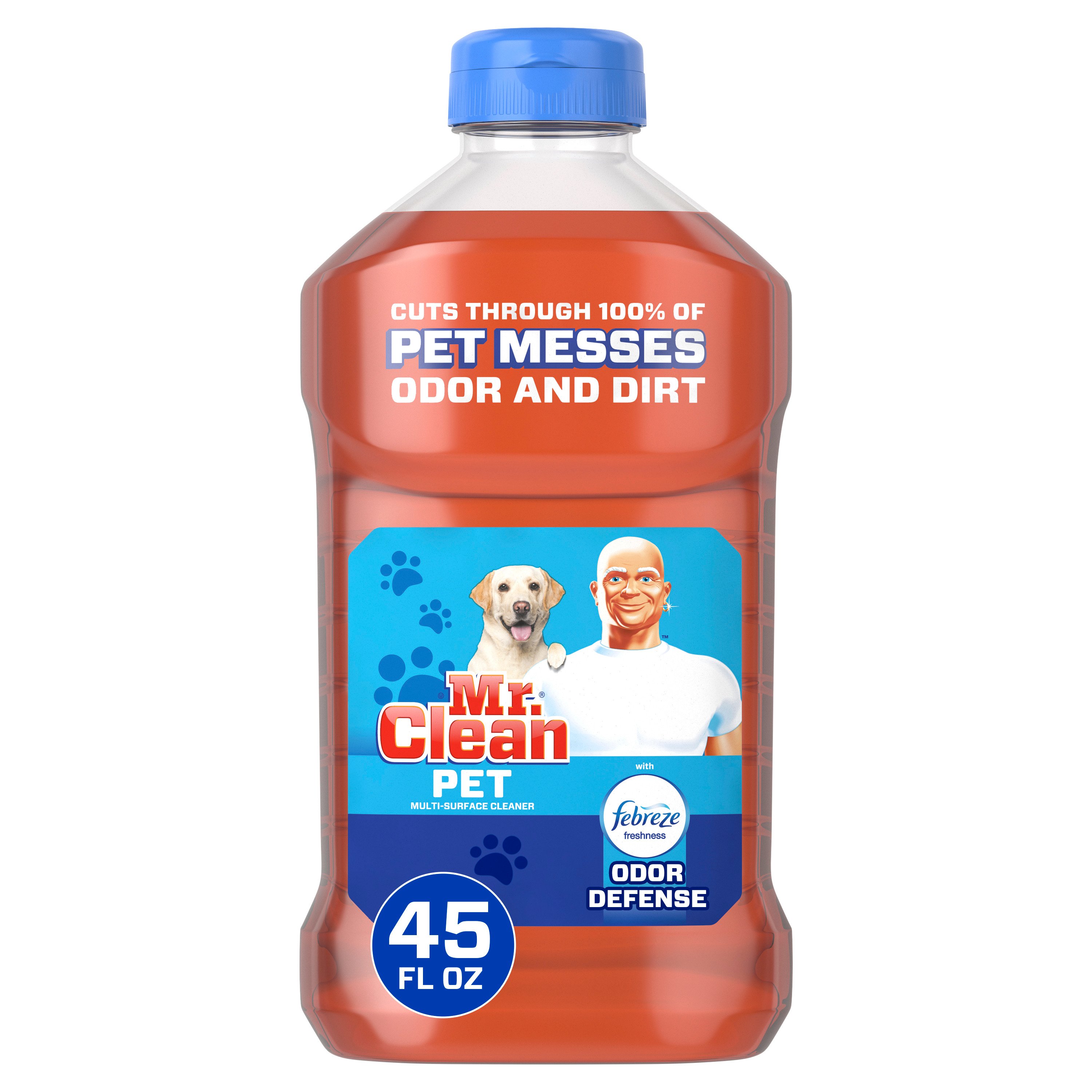The joys of pet ownership are undeniable, but they often come with an unwelcome side effect: pet accidents. While accidents are a normal part of life with furry friends, the lingering odor of urine can be a real nuisance. Hardwood floors are especially susceptible to absorbing the smell, leaving your home smelling less than fresh.
Image: floortechie.com
Finding the right cleaner is crucial for removing urine stains and eliminating the odor completely. The wrong product can leave behind residue that attracts your pet to the same spot again, complicating the matter. Fear not! This guide will help you choose the best hardwood floor cleaner for pet urine, tackling the problem head-on.
Understanding Pet Urine and Hardwood Floors
Pet urine is a complex substance. It contains ammonia, a pungent compound responsible for the strong odor. When urine penetrates hardwood floors, the ammonia seeps into the wood fibers, creating a deep-seated issue. Regular cleaning alone won’t remove this odor, requiring specialized solutions.
Choosing the Right Hardwood Floor Cleaner: A Step-by-Step Guide
The ideal hardwood floor cleaner for pet urine should be formulated to break down ammonia, neutralize odors, and remove stains effectively. Here’s what to look for:
- Enzyme-Based Cleaners: These cleaners contain enzymes that break down the urine molecules, eliminating the odor at its source. Enzyme-based cleaners are generally considered safer for pets and won’t harm your hardwood floors.
- pH-Balanced Solutions: Urine is acidic. Choose a cleaner with a neutral pH level to effectively neutralize the urine’s acidity. A balanced pH helps prevent further damage to your floors.
- Deodorizing Agents: Some cleaners incorporate deodorizing agents to mask the odor. These agents are useful for immediate odor control, but they don’t address the underlying cause. Remember, they often cover the scent temporarily.
- Avoid Harsh Chemicals: While some cleaners use bleach or ammonia-based solutions, these harsh chemicals can damage your hardwood floors and pose a safety risk for your pets. Opt for eco-friendly, pet-safe solutions.
Before applying any cleaner, it’s essential to blot up excess urine with paper towels or absorbent cloths to prevent further spreading. Once absorbed, you can proceed with cleaning.
Additional Tips for Eliminating Pet Urine Odor
Beyond the right cleaner, additional steps can enhance odor elimination and protect your hardwood floors:
- Ventilation: Open windows and doors to allow fresh air to circulate. This helps to dissipate the odor and prevent it from lingering.
- Baking Soda: Sprinkle baking soda over the affected area and let it sit for a few hours. Baking soda is a natural deodorizer that absorbs odors.
- Essential Oils: Add a few drops of essential oils like lavender or citrus to your cleaner to mask any residual odor. Lavender is known for its calming effect, making it suitable for pet environments.
- Professional Cleaning: If the odor persists or the stain remains problematic, consider contacting a professional cleaning service. They have specialized equipment and cleaning solutions to tackle stubborn stains and odors effectively.

Image: www.heb.com
Preventing Future Accidents
Preventing future accidents is crucial in keeping your hardwood floors clean and odor-free. Here are some tips to keep your pet happy and your floors accident-free:
- Regular Potty Breaks: Take your pet out frequently, especially after meals and naps. This reduces the chances of accidents.
- Designated Potty Area: Establish a clear potty area for your pet, whether it’s a specific spot outdoors or a designated litter box indoors. Consistency is key.
- Training Aids: Utilize consistent training methods, such as positive reinforcement and crate training, to encourage proper bathroom habits. Remember, patience and consistency are essential.
FAQ: Frequently Asked Questions
Q: Can I use vinegar to clean up pet urine?
A: While vinegar can neutralize odors and kill bacteria, it should only be used sparingly on hardwood floors as it can dull the finish over time. For stubborn stains, diluted vinegar can be used as a pre-treatment before using a specialized cleaner.
Q: Is it safe to use bleach on hardwood floors?
A: Bleach should never be used on hardwood floors. It can damage the finish and create a harmful environment for your pets. Stick to specialized cleaners formulated for hardwood and pet urine removal.
Q: How often should I clean my hardwood floors?
A: Regular cleaning is essential to prevent stains and odors. Aim to sweep or vacuum your hardwood floors daily and mop with a specialized cleaner at least once a week. For areas prone to accidents, you can mop more frequently.
Best Hardwood Floor Cleaner For Pet Urine
Conclusion
Maintaining the beauty and integrity of your hardwood floors while living with pets requires mindful cleaning practices. Utilizing the best hardwood floor cleaner for pet urine, along with these tips and prevention strategies, you can keep your home smelling fresh and your pet happy.
Are you ready to tackle pet urine stains and odors effectively? Share your experiences and any further questions you may have in the comments below!






